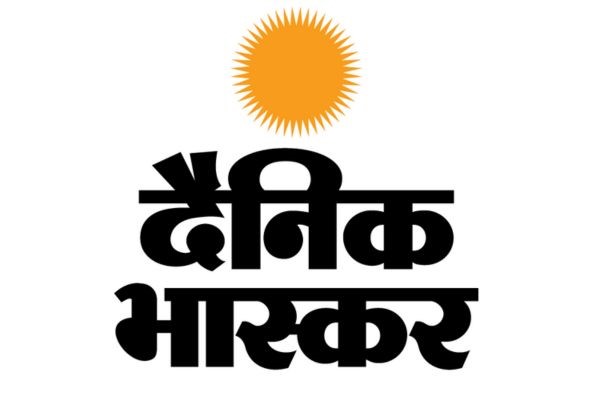
News24 Think First
Introduction: News24 Think First
In a world where news spreads faster than ever, stopping for a moment before reacting can make all the difference. That is exactly what News24 Think First stands for—a reminder to pause, reflect, and make sense of information before acting on it.
This initiative is more than a slogan; it’s a campaign to help readers fight misinformation, respect diverse opinions, and make informed choices. Alongside this, hobbies and lifestyle practices—or “hibbies”—play a role in supporting the calm, thoughtful mindset that Think First encourages.
Table of Contents
What is News24 Think First?
News24 Think First is an awareness program run by News24, one of the leading digital media brands. Its goal is simple yet powerful:
- Promote critical thinking when consuming news.
- Encourage people to verify facts before sharing.
- Support respectful and meaningful dialogue online.
By reminding people to slow down and reflect, Think First helps create safer, more responsible spaces for conversations.
Why the Initiative Was Created
Encouraging Critical Thinking
Think First was designed to build habits of asking questions, checking sources, and looking beyond headlines.
Combating Fake News
With so much false content circulating online, this initiative helps people separate truth from misinformation.
Building Respectful Communities
By thinking first, individuals can avoid impulsive arguments and instead create constructive discussions that benefit everyone.
Main Features of Think First
Insightful Articles
Readers can access in-depth pieces that explain current issues with context and analysis rather than just quick updates.
Public Participation
The platform encourages audience comments and engagement, with a focus on thoughtful contributions instead of reactive remarks.
Digital Literacy Drives
Campaigns teach people how to spot fake stories, avoid clickbait, and double-check information.
Accessibility
Since News24 is available across devices, Think First remains just a click away for anyone, anytime.
Why Thinking First Matters
Too Much Digital Noise
We live in an age of information overload. Think First helps people filter out the noise and focus on credible facts.
Emotional Reactions
Quick reactions online often lead to conflict and stress. Pausing before responding brings balance and reduces misunderstandings.
Long-Term Benefits
Thinking first doesn’t just improve online behavior—it also improves decision-making in personal, professional, and academic life.
Hibbies and Lifestyle Connections
The word “hibbies” refers to hobbies and personal activities. Interestingly, many hobbies align with the Think First philosophy by encouraging patience, reflection, and focus.
Reading
- Builds deeper understanding of complex issues.
- Improves vocabulary and critical thinking.
Writing or Journaling
- Helps process emotions and thoughts.
- Encourages clarity before speaking out.
Mindfulness Practices
- Meditation and breathing exercises strengthen focus.
- Reduces anxiety caused by overwhelming news cycles.
Sports and Outdoor Activities
- Promote teamwork and discipline.
- Provide healthy outlets instead of venting frustrations online.
Creative Arts
- Painting, music, or photography encourage self-expression.
- Develop patience and problem-solving skills.
Everyday Applications of Think First
At Work
Employees who adopt a Think First approach are more likely to make fair, balanced decisions.
At School
Students learn to question sources and develop academic honesty.
At Home
Families can resolve disagreements more calmly when everyone takes a moment to reflect before reacting.
Digital Literacy and Think First
A core focus of the initiative is digital literacy—the ability to identify reliable information and engage responsibly online. It teaches readers how to:
- Recognize fake or biased reporting.
- Check authors and sources.
- Understand why ethical journalism matters.
Challenges Ahead
Even with strong awareness campaigns, Think First faces challenges such as:
- Short attention spans in the digital era.
- Social media platforms that reward instant reactions.
- Confirmation bias, where people only trust information that matches their beliefs.
Role of Technology in Supporting Think First
- Fact-checking tools help readers verify accuracy instantly.
- AI-based recommendations highlight credible sources.
- Mobile-friendly content ensures quick access during real-time browsing.
Positive Impact of Think First
On Journalism
Encourages deeper reporting with context and fairness.
On Society
Promotes tolerance, awareness, and open dialogue.
On Individuals
Improves confidence in decision-making and reduces stress from misinformation.
How to Practice “Think First” Daily
- Pause before posting anything online.
- Double-check the source of a news story.
- Ask critical questions: Who wrote this? What’s the purpose?
- Stay calm when reading triggering headlines.
- Engage politely, even in disagreements.
Future of the Initiative
Looking forward, News24 Think First is expected to grow with:
- Partnerships in schools and universities.
- Mobile apps to make fact-checking easier.
- Interactive webinars for digital literacy.
- Collaborations with influencers to spread the message.
Conclusion
News24 Think First is not just a campaign—it’s a way of living in the digital age. By slowing down, checking facts, and respecting others, we can make our online and offline spaces healthier.
Hobbies such as reading, writing, meditation, and creative arts further support this mindset, giving us the patience and clarity to pause before reacting.


